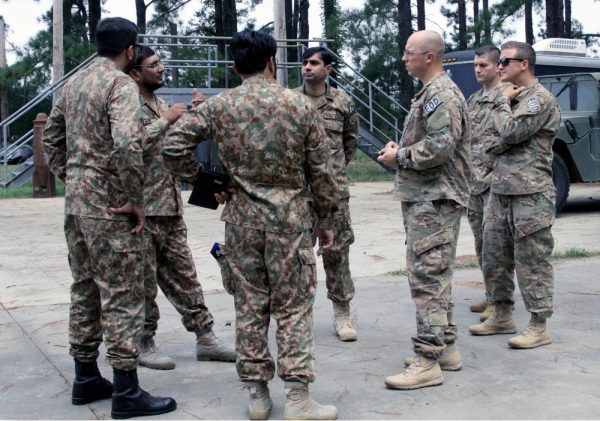As Washington looks for options post-Afghanistan withdrawal, Islamabad isn’t going to roll out the red carpet.

Washington is looking to maintain a counterterrorism infrastructure in the region following its withdrawal from Afghanistan. Officials from both sides, including U.S. National Security Advisor Jake Sullivan, confirmed that Pakistan and the U.S. have held talks on the matter. While Sullivan stressed that discussions have been constructive, Pakistani interlocutors have ostensibly refused to host drone bases for the Central Intelligence Agency (CIA).
In response to a flurry of speculations regarding the prospect of Islamabad giving military bases to the United States, Pakistan’s Foreign Minister Shah Mehmood Qureshi categorically stated Pakistan would not give any military base to the United States. He went on to say Pakistan would look after its own interests, indicating that granting basing rights to the U.S. is not considered advantageous.
While the precipitous withdrawal of U.S. forces from Afghanistan will likely compel Washington to repeatedly cajole Islamabad to revisit its stand on the issue, Pakistan will likely not succumb to U.S. inducements and pressures. There are three factors that will account for Pakistan’s perseverance and inflexibility on extending basing rights to the United States.
First, the consistency with which Pakistan’s Prime Minister Imran Khan has vociferously opposed his country’s past dealings with Washington has left little room for his government to acquiesce to U.S. requests. Before coming into power, Khan was a staunch critic of U.S. drone strikes in Pakistan, even launching a campaign against them. However, Khan’s criticisms were not merely directed toward the United States and its high-handed behavior – he also lambasted successive Pakistani governments for what he considered selfish, interest-based connivance with Washington.
Therefore, in his enunciations before assuming power, Khan had vowed to fight the war on terror without being perceived as an appendage of the U.S.
It is noteworthy that, even after taking the reins, Khan has time and again stressed the need for having a balanced and mutually beneficial relationship with the United States. Also, Khan has reaffirmed that Pakistan would only become a U.S. partner in peace going forward.
With Khan having taken such maximalist positions in his policy toward Washington, his government giving the U.S. basing rights, which could pave the way for kinetic action from and on Pakistani soil, will be politically very damaging for him. Such a drastic change of tack may not only turn public opinion against Khan but also raise many a question on his ability and power to call the shots in the foreign policy and security domains. This, in turn, would undercut Khan’s “same-page” mantra regarding civil-military relations.
High-ranking Pakistani officials, including Qureshi and National Security Advisor Moeed Yusuf, have also alluded to Khan’s well-known approach to the war on terror and Pakistan-U.S. relations as one of the principal factors that make it rather impossible for Pakistan to commit to hosting U.S. bases. With all this in mind, an about-turn by the premier will be costlier than ever.